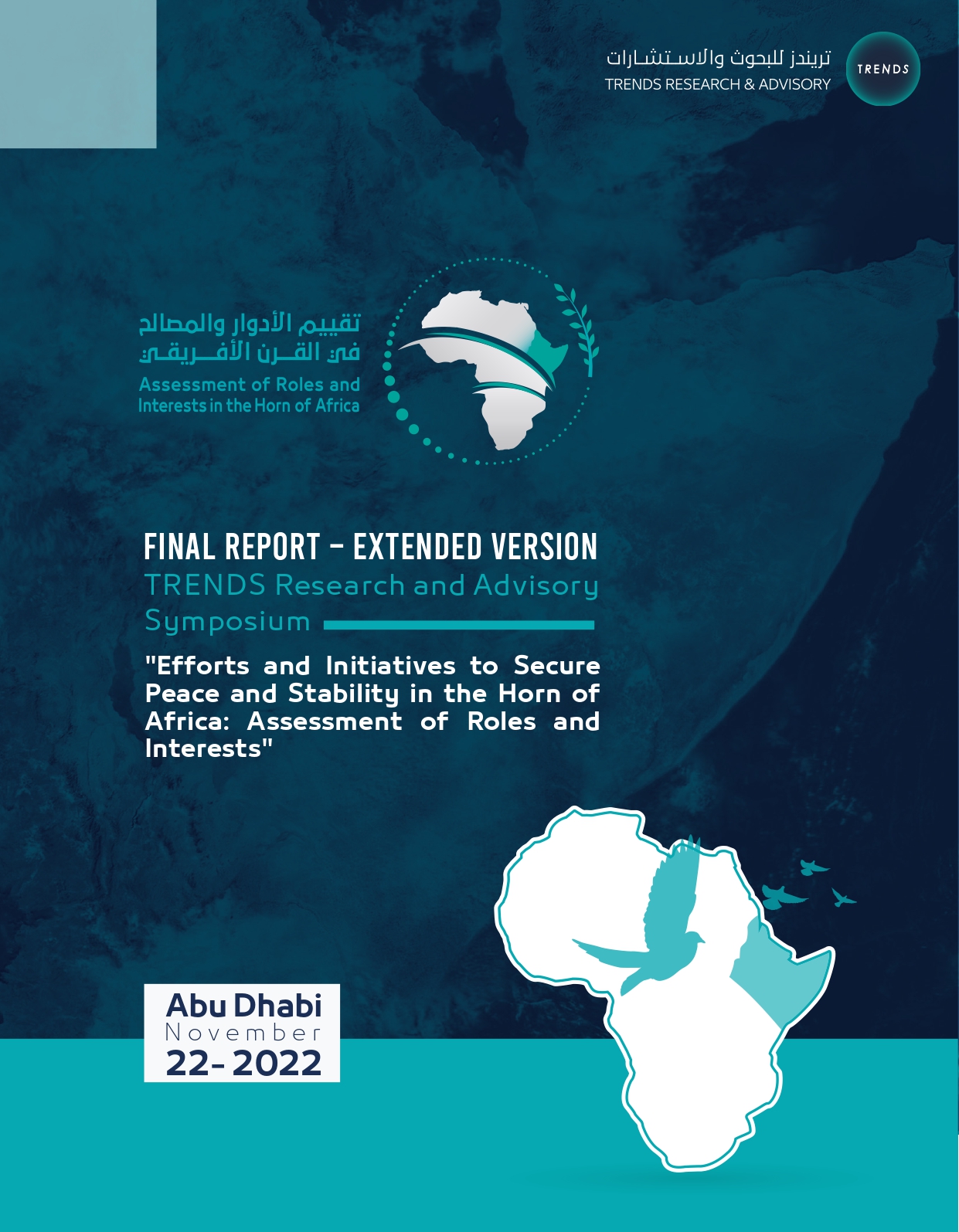On 22 November 2022, TRENDS Research and Advisory held a symposium titled “Efforts and Initiatives to Secure Peace and Stability in the Horn of Africa: Assessment of Roles and Interests.”
The event brought together a diverse group of academics, researchers, experts, and practitioners from the United States, the United Kingdom, Finland, India, Italy, and Portugal to share their perspectives on the causes of and potential solutions to conflict in the Horn of Africa. Participants recognized at the outset how historical legacies and present-day challenges combine to create deep-seated antagonism, distrust, and conflict among States in the region. Despite multi-decade efforts, these conflicts are seldom concretely resolved, with the vital and strategic region continuing to suffer from instability and conflicts of various intensities. Organized into a program of four thematic areas, participants sought to explore drivers of instability within each area before proceeding to iteratively develop and propose potential solutions.
With regard to the first theme, “Stability in the Horn of Africa: Determinants, Causes and Motives,” establishing durable, long-term stability in the Horn of Africa necessarily involves preventive approaches addressing the range of potential instability drivers, including armed conflict, political turmoil, fragile governance, poverty, food insecurity, and water insecurity. It has generally also been the case that third countries involved in the Horn of Africa have eventually become regional rivals, with negative and destabilizing effects. Third parties should therefore focus on increasing coordinated joint multilateral action as well as on building the institutional and technical capabilities of national governments.
In the second theme, “Maritime Security and Piracy in the Horn of Africa: Challenges and Mitigation,” it was noted that maritime security in the Horn of Africa – based on the shared belief that a secure maritime environment is a ‘public good’ – is best achieved through developing mutual understanding and cooperation among States. Capacity building in the broadest sense of the word, i.e., technical, institutional, legal, and human capabilities, will be of critical importance. Ultimately, however, maintaining maritime security in the long run will depend on solving the root causes on land which drive piracy, namely armed conflict, weak institutions, fragile governance, and poverty.
The third theme, “Efforts and Initiatives to Secure Peace and Stability in the Horn of Africa: Rationales and Interests,” discussed the involvement of external actors in securing peace and stability in the region and the worrying trend it revealed. The risk of conflict between major powers in the Horn of Africa is increasing because of their growing strategic competition. In addition to a general ramping down of strategic rivalries, it would be beneficial for third countries to increase positive and constructive mediation based on established and stable relations. The important role of intergovernmental organizations for conflict resolution and for the discrete handling of security and economic development challenges was also emphasized.
The fourth and final session, “Future Efforts and Initiatives to Secure Peace and Stability in the Horn of Africa,” recognized the key importance of internal dialogue and trust-building measures to lay the foundations for conflict de-escalation and eventual peace and stability. Participants again emphasized that major powers must reduce bilateral strategic competition in favour of multilaterally agreed solutions. Finally, initiatives including integrated electric power grids and interconnected transport networks were proposed as an enduring means of strengthening regional integration and economic cooperation among Horn of Africa countries.



